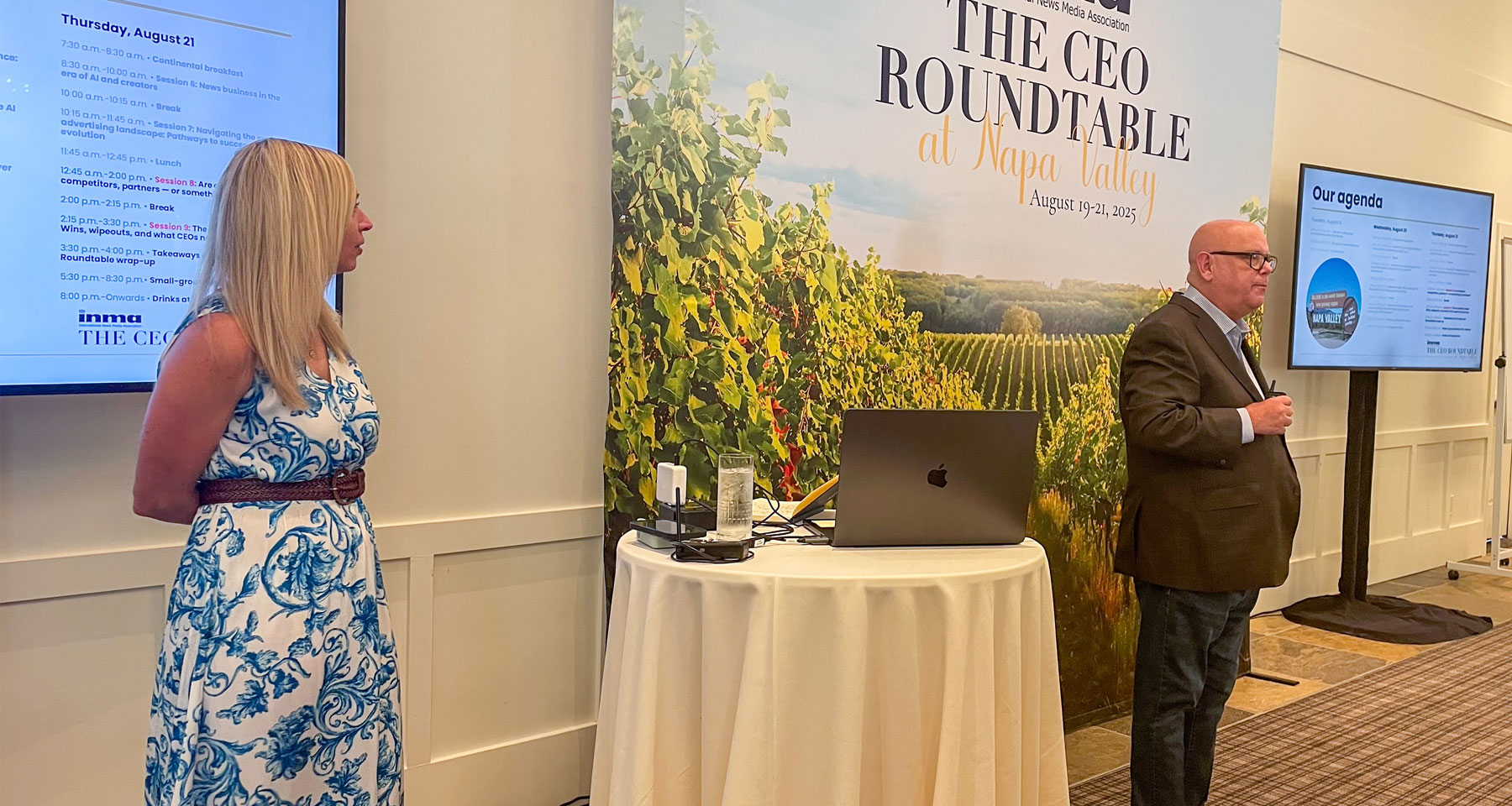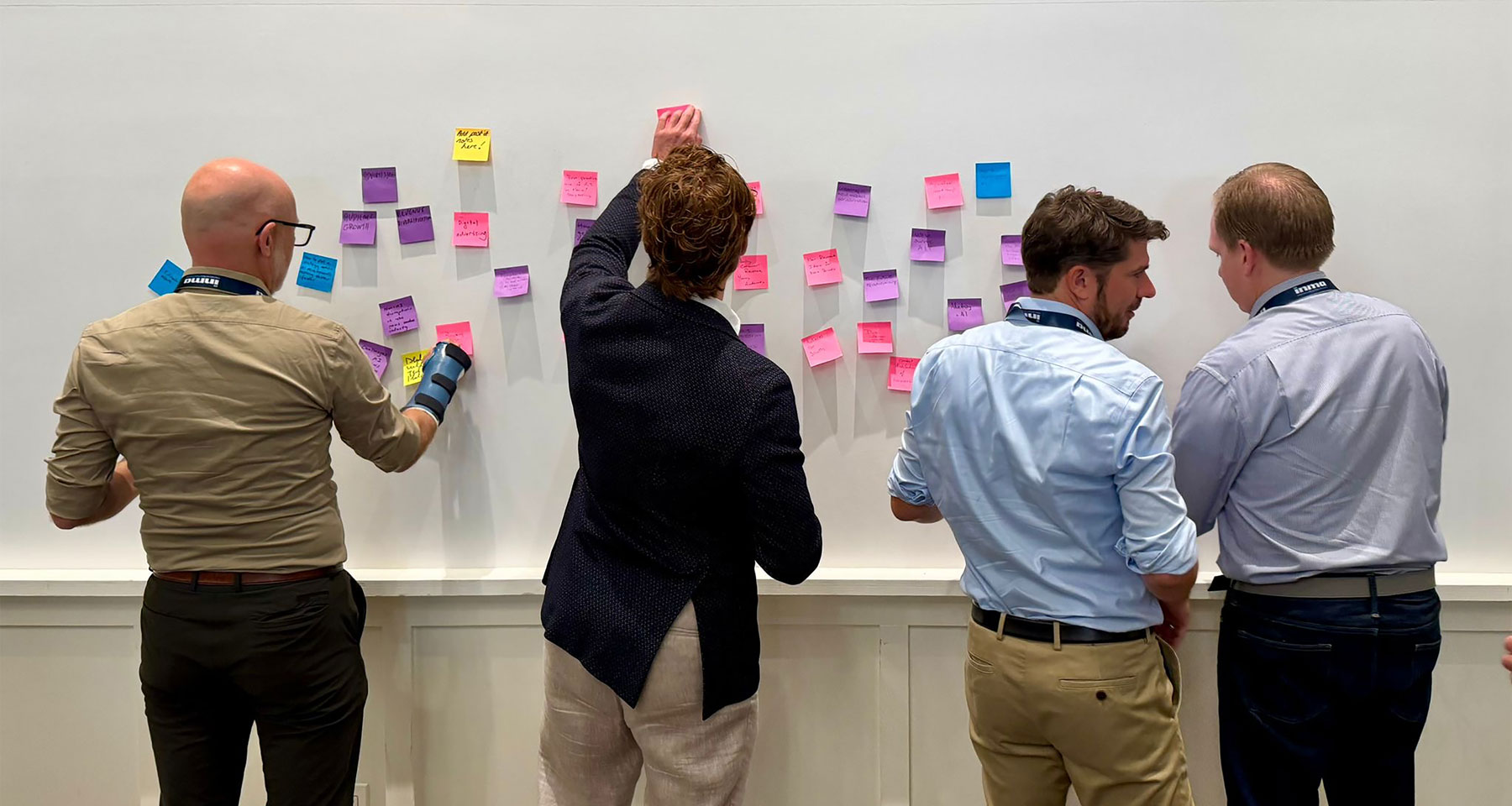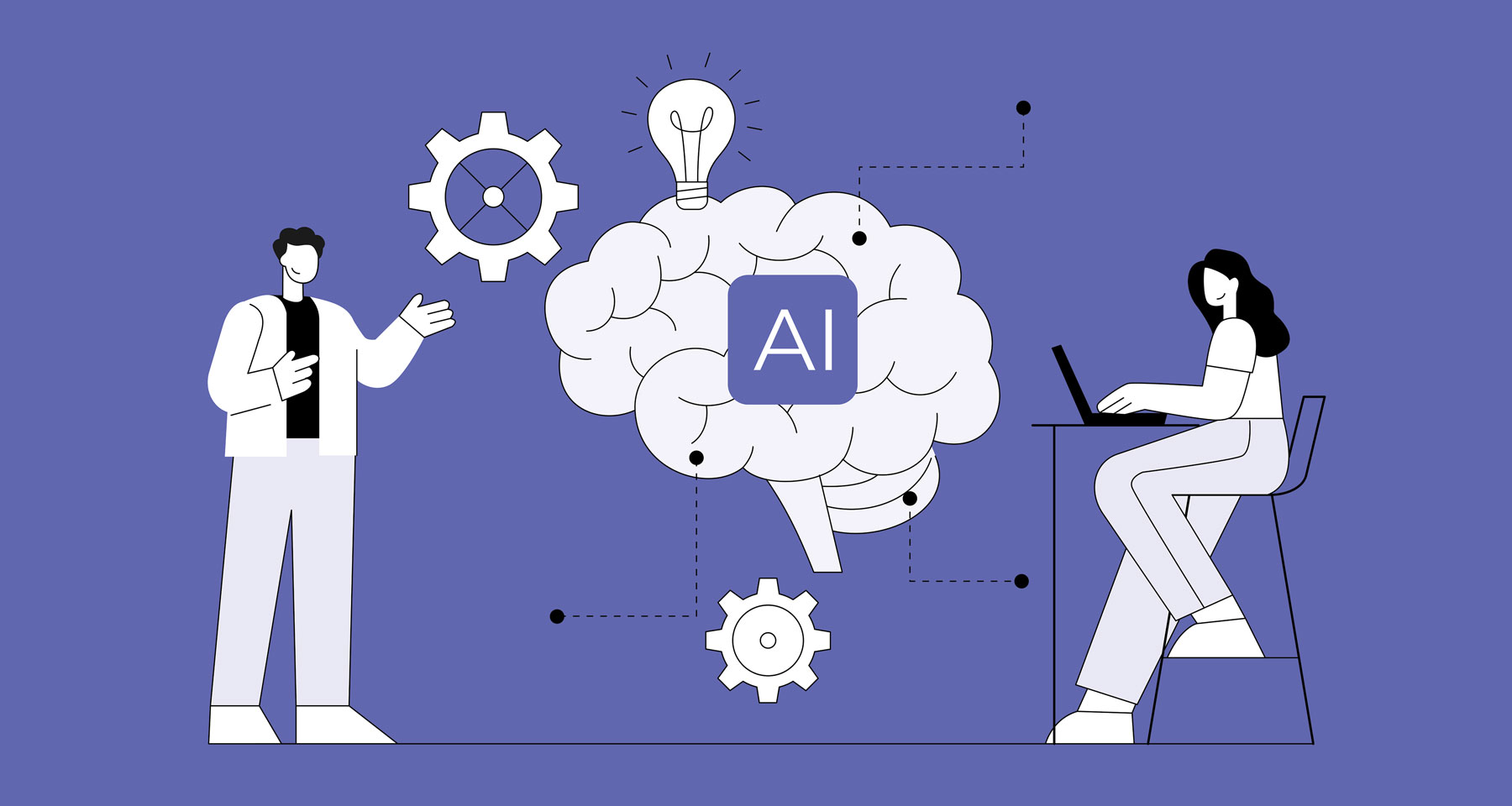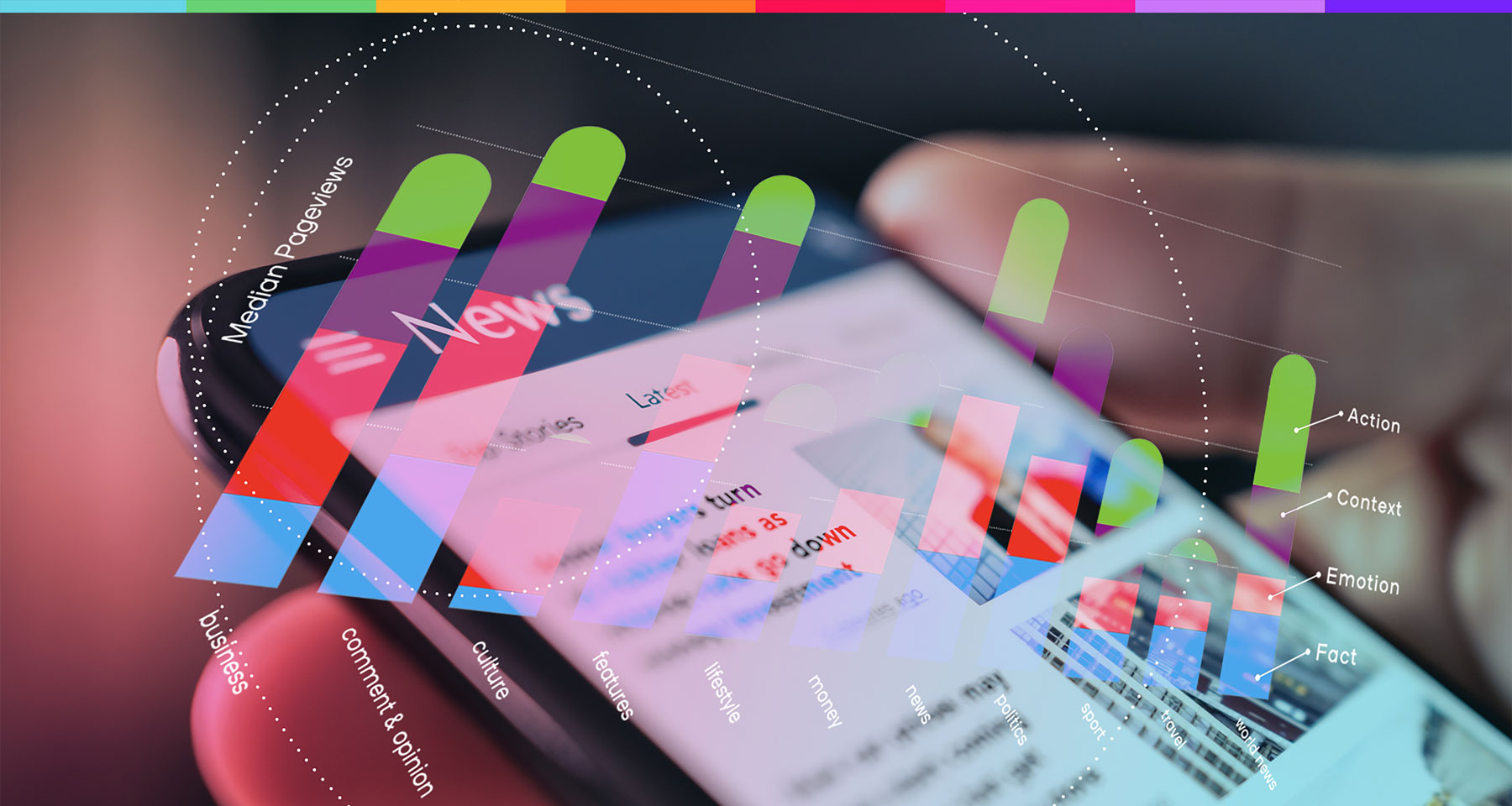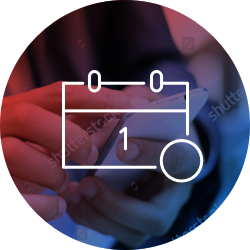Premium Times adopts Google Notebook LM to streamline audio products
Conference Blog | 11 September 2025
Premium Times has adopted Google Notebook LM as part of its strategy to improve efficiency and adapt to the evolving demands of digital journalism.
Akinola Oyewobi, assistant head of digital strategy and technology at the Nigerian news company, said in the recent INMA Africa Newsroom Transformation Summit that the AI-powered tool functions as a research assistant, enabling journalists to summarise, analyse, and transform text into audio formats.
The integration of Notebook LM responds to audience habits, growing competition, and the need to deliver stories quickly in different formats.
A better way to do podcasts
“We discovered Google Notebook LM from a place of hunger to get our podcasts going and make them accessible,” Oyewobi said. “Audiences increasingly consume news on their mobile devices, and they expect content on the go. Our challenge was finding tools that could help us meet this demand quickly. Notebook LM gave us a seamless way to move from text to audio.”
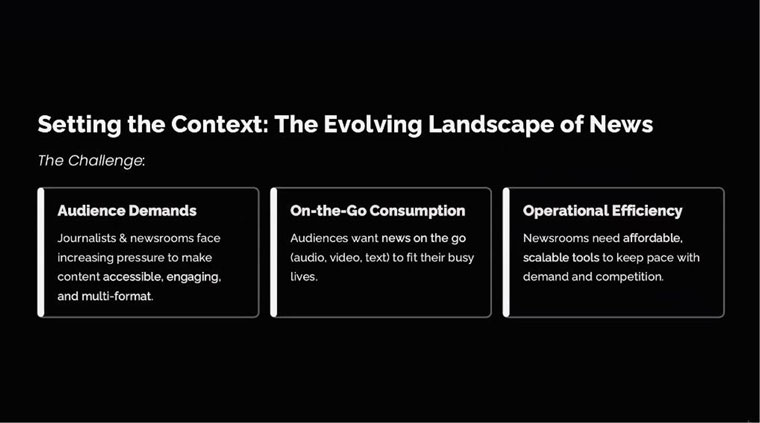
The Nigerian newsroom initially experimented with the platform when it faced the challenge of producing both video and audio content with limited resources. Staff members were searching for affordable, scalable tools that could keep pace with demand. Notebook LM provided a workflow that allowed Premium Times to import articles, adjust prompts, and generate podcasts for distribution across multiple platforms.
“Production became quicker, significantly reducing time in podcast creation,” Oyewobi explained. “We ensured every podcast went through editorial checks to avoid inaccuracies. The tool is not a replacement but an assistant to journalists. Human oversight remains critical to safeguard quality.”
The pros and cons
This approach reflects broader industry pressures. Newsrooms worldwide are adapting to an environment where audiences consume information in shorter bursts and increasingly through mobile devices. Readers expect stories to be not only accessible but also engaging and available in diverse formats.
In Nigeria, where mobile penetration continues to grow, audio journalism has become an important channel for reaching busy audiences on the move.
“Even the AI voices are westernized, not reflecting how Nigerians speak,” Oyewobi said. “We need to start thinking about creating localized AI tools that carry our voices. Decolonizing technology should be part of the conversation. Adapting AI to African realities is the next step.”
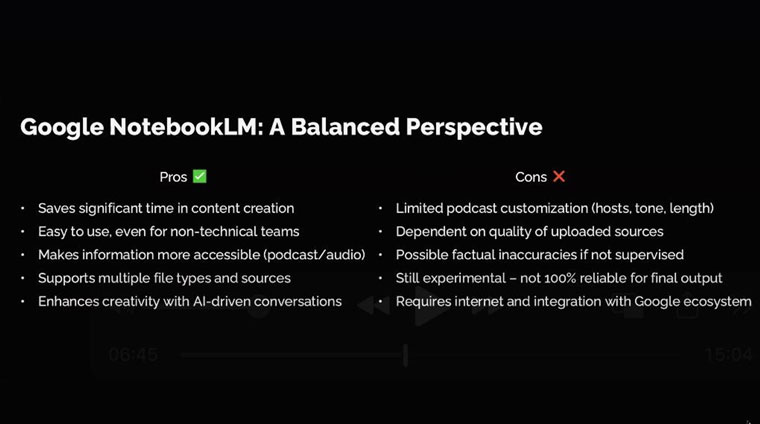
The process of converting articles into podcasts involves newsroom discussions about which reports would be most suitable, followed by uploading documents into Notebook LM. The tool then creates a conversation-like script, which can be adjusted before export. Once finalised, the content is distributed on podcast platforms, expanding Premium Times’ reach among audio-first audiences.
“AI works best when paired with strong, well-researched source material,” Oyewobi said. “Poor input leads to poor output, and that is why oversight is essential. The goal is not to replace reporters but to make their work more accessible. Notebook LM has shown us what is possible, but it is still a tool in progress.”
While the tool has improved operational efficiency, it has also highlighted challenges. Customisation remains limited, as users cannot fully control aspects such as podcast length, tone, or number of hosts. The output also depends heavily on the quality of uploaded sources, which means investigative pieces and special reports still require careful human review.
“For every podcast we produced, we subjected it to editorial checks,” Oyewobi said. “We wanted to make sure factual integrity was never compromised. The audience trusts us for accuracy, and that responsibility does not change with AI. We continue to see Notebook LM as an assistant, not a final product.”
Getting the newsroom on board
Premium Times has also faced skepticism within its newsroom. Some staff were concerned that adopting AI-driven tools might replace their voices or reduce their role in storytelling.
Management addressed these concerns by framing Notebook LM as a complement to, rather than a substitute for, human creativity. Training sessions were introduced to help staff use AI responsibly, focusing on accuracy, tone, and editorial judgment.
“It was difficult to convince some colleagues at first,” Oyewobi said. “They felt as though AI was replacing their voices. We had to provide training to show that this was about support, not replacement. Adoption required a cultural shift as much as a technical one.”
What’s next
Looking ahead, Premium Times is exploring new ways to apply Notebook LM and other AI tools. Plans include using AI for special report explainers, in-depth investigations, and multilingual podcasts to reach broader audiences across Africa.
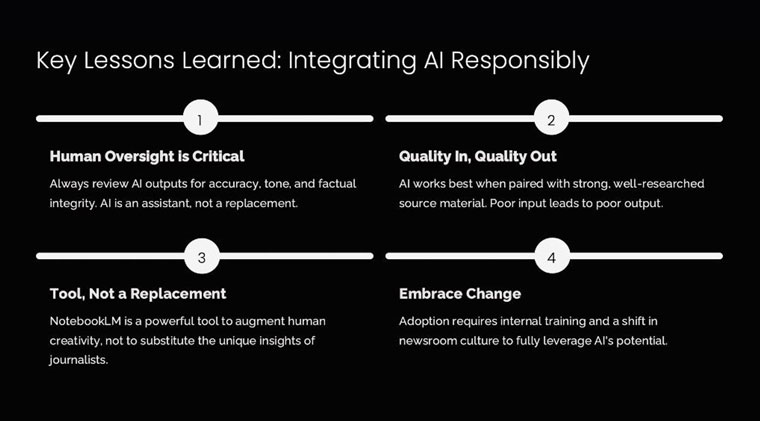
The newsroom also acknowledges the importance of developing local solutions that reflect African voices and contexts, rather than relying solely on tools designed in the West.
“We continue to train our newsroom staff on how to use AI responsibly,” Oyewobi said. “The real value lies in adapting these tools carefully. AI storytelling must evolve in a way that reflects our identity. At Premium Times, we see Notebook LM as a way to enhance, not replace, our journalism.”
The adoption of Google Notebook LM at Premium Times highlights both the promise and the limits of AI in journalism. While the tool has accelerated production and expanded accessibility, it has also reinforced the need for editorial oversight and cultural adaptation.
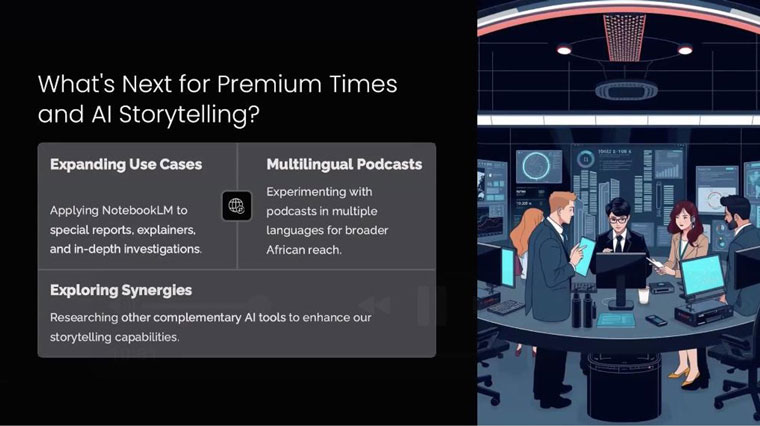
The lessons from this experiment show that technology alone cannot define the future of journalism. Its value depends on how it is integrated, supervised, and localised.
“AI tools like Google Notebook LM can reshape how journalism is produced and consumed,” Oyewobi said. “But their true value lies in how we adapt them responsibly. Technology should always serve the audience. In the end, human creativity and judgment remain irreplaceable.”


